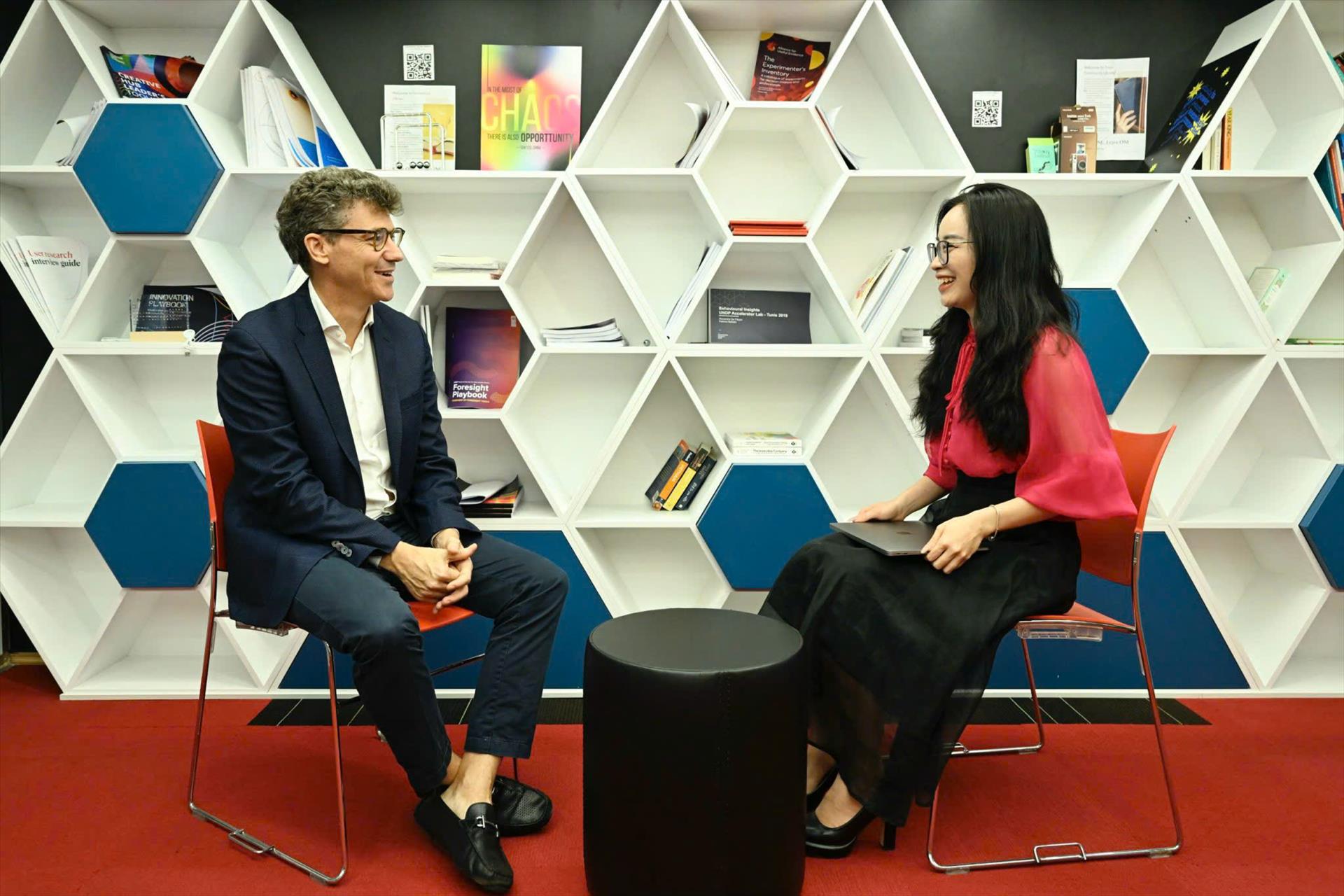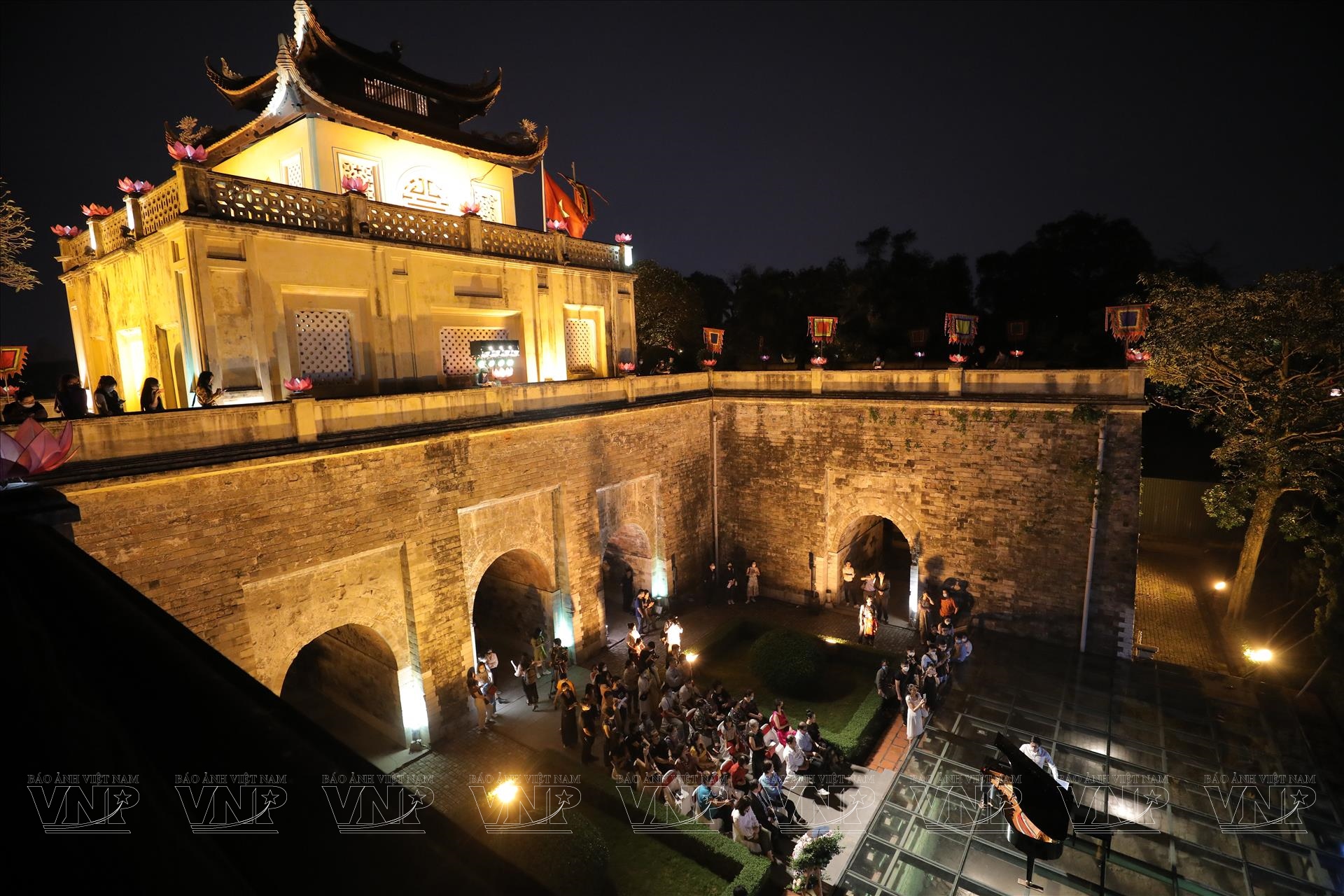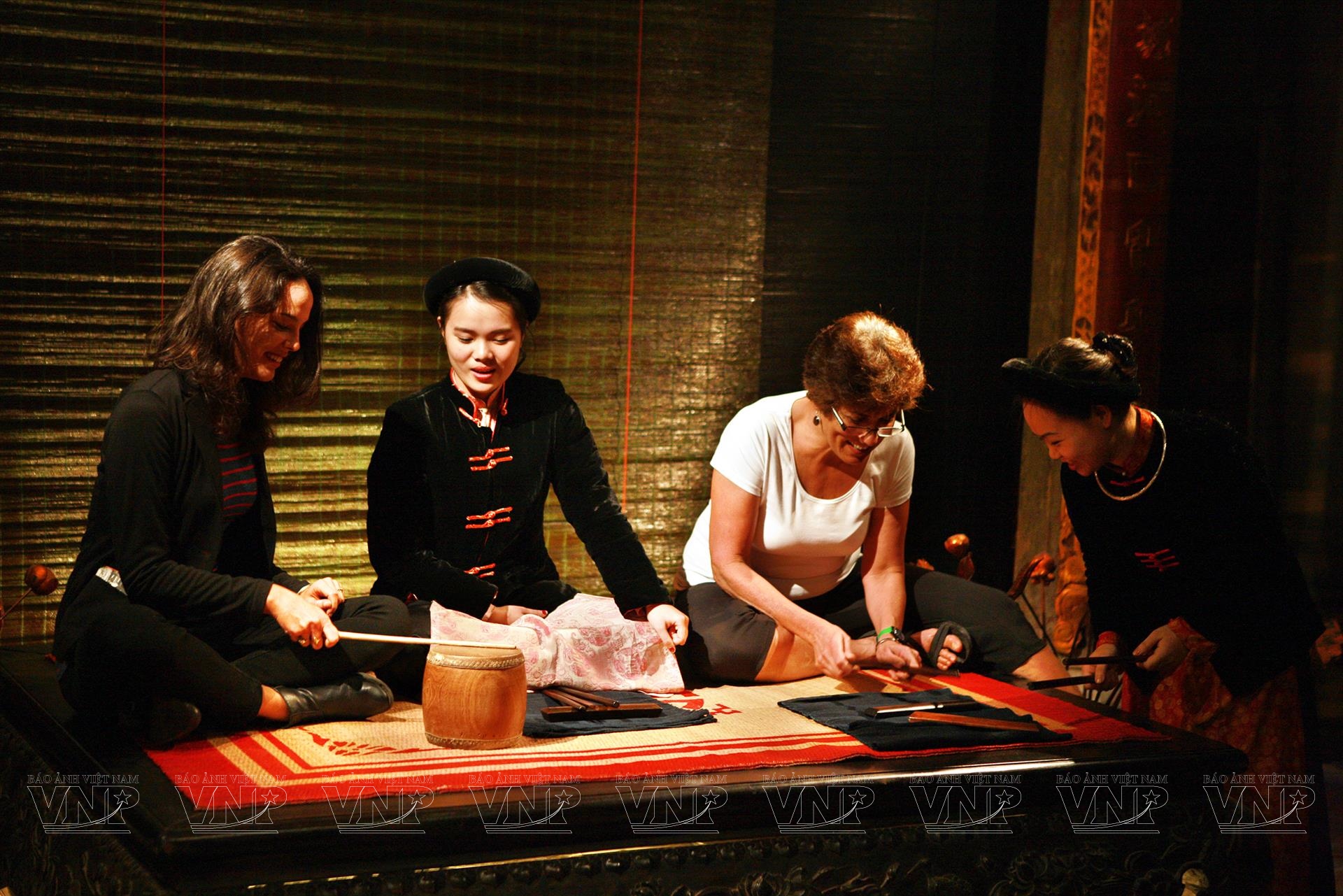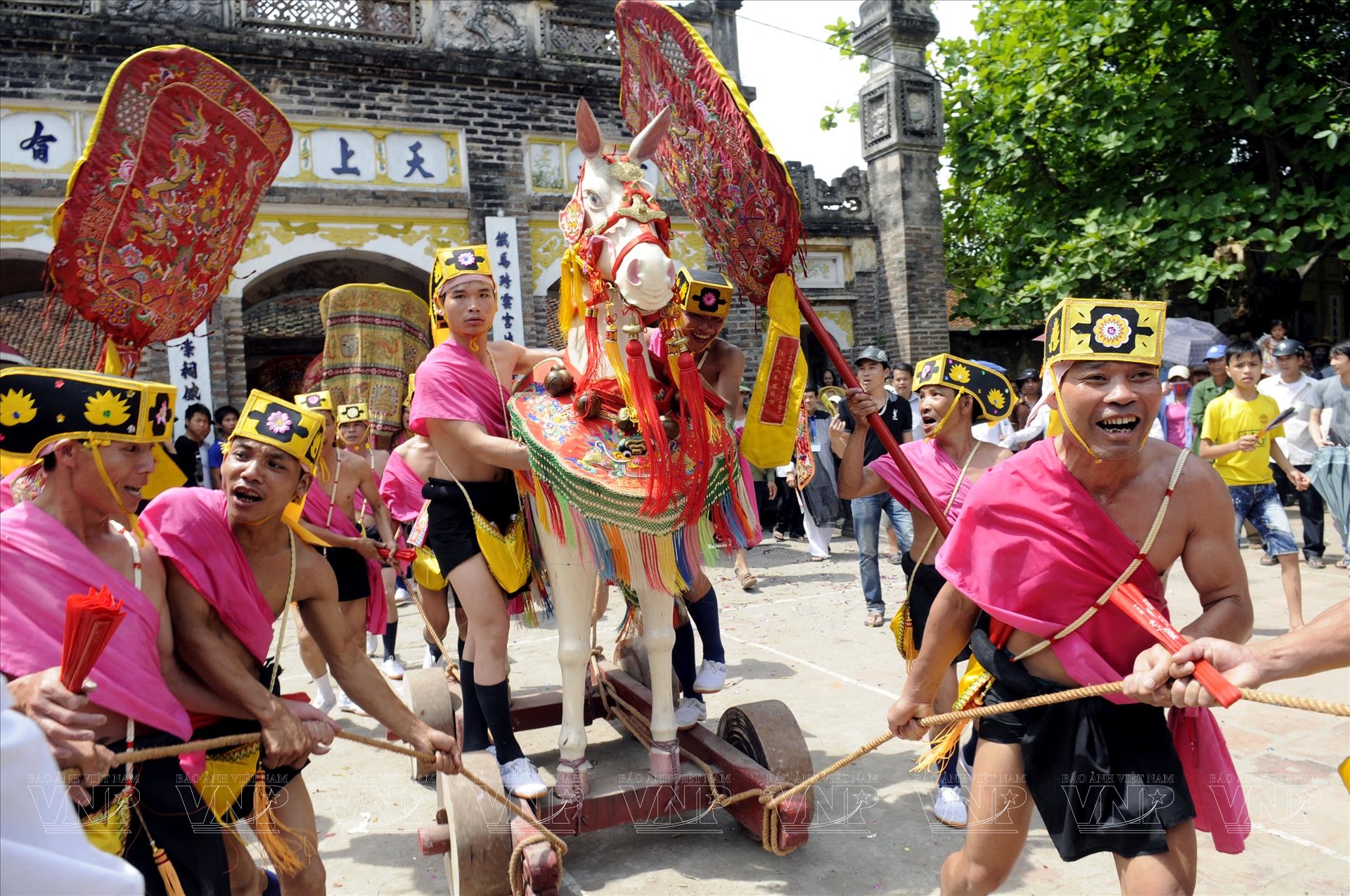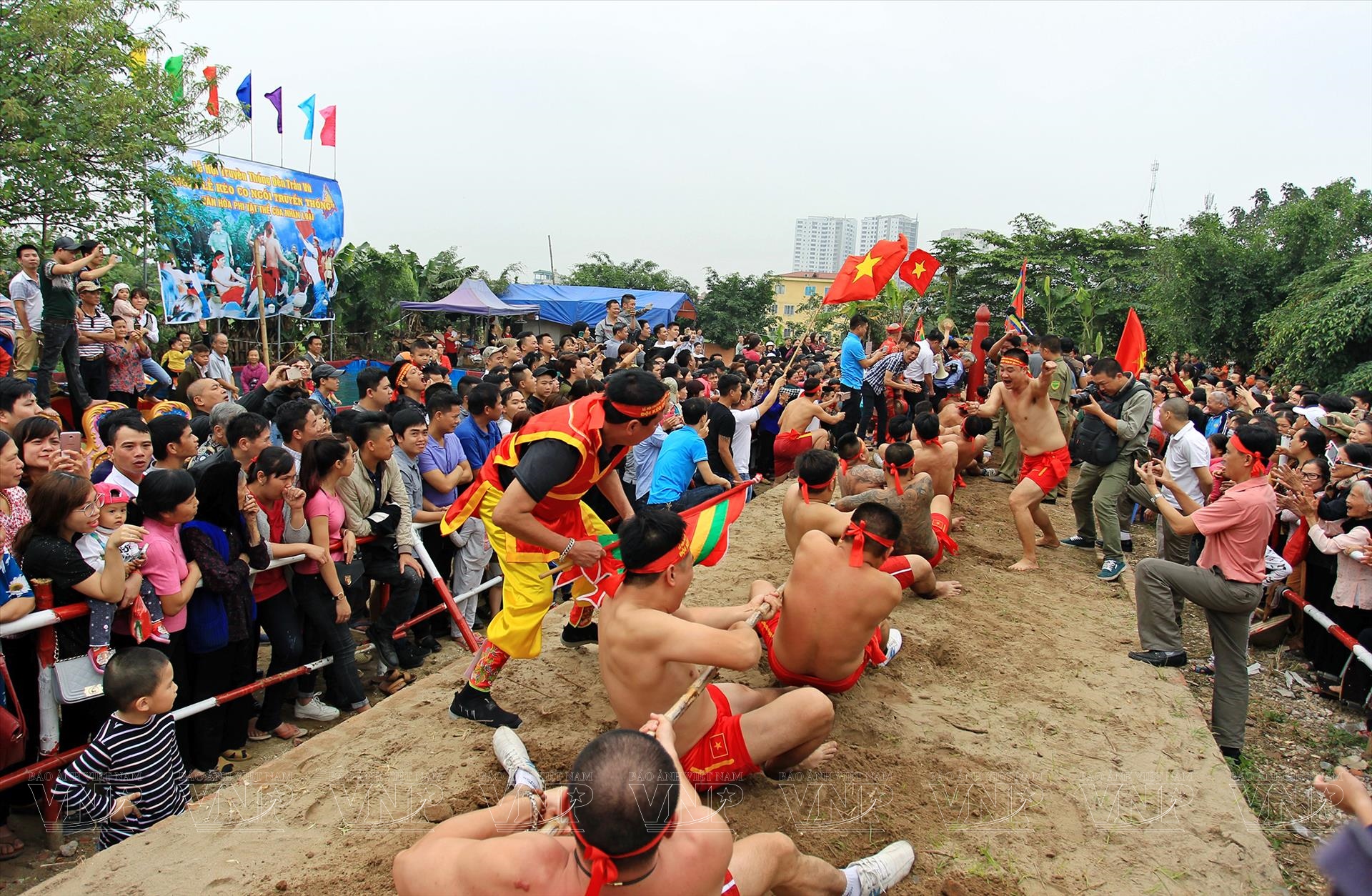UNESCO's Perspective on Hanoi, A Heritage City
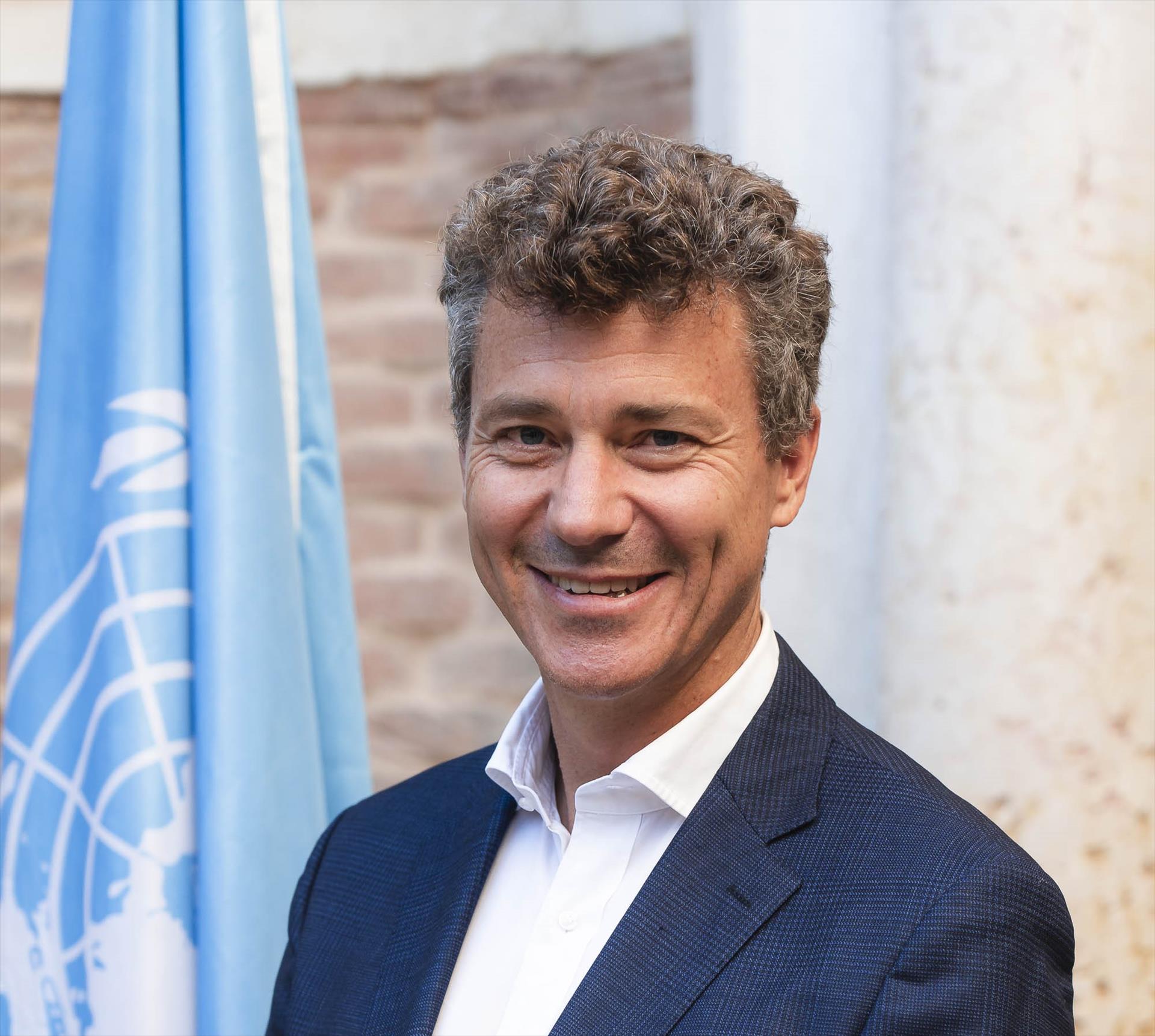
Reporter: Could you share your most memorable experiences while working in Hanoi?
Jonathan Wallace Baker: I have been in Vietnam since January, 2024, serving as the UNESCO representative for nearly nine months now. Despite this relatively short time, I’ve already had the chance to witness many fascinating aspects of Vietnamese culture. One of the very first events was the traditional cultural practice of Vietnamese people performed at Thang Long Imperial Citadel, a UNESCO designated World Heritage Site, on the occasion of Tet (the Lunar New Year 2024). What impressed me was the practice of offering incense to the ancestors and kings, of worshiping the god of the kitchen or making banh chung (square sticky rice cake) at Thang Long Imperial Citadel and at some other places around the capital city.
In the context that our society is changing rapidly and sometimes traditional cultural practices are forgotten, observing such practices in one of the most spiritual places of the country at a very important time, Tet, gave me mixed feelings. Firstly, I understood more about the culture of Vietnam, the frequent practices in the royal palace over the past thousands of years, which was incredible. Secondly, I felt the values of Thang Long Imperial Citadel, the heart of the capital city and also the heart of Vietnam in the past and now.
I have to say that UNESCO made the right decision in designating the Thang Long Imperial Citadel as a World Heritage Site as to me it even deserves more than that. The tangible and intangible heritages make the site very unique. We often feel much energized when visiting the citadel, especially in special moments like Tet. I hope the values of Thang Long Imperial Citadel will be promoted further to broader communities so that the tangible and intangible cultural practices there can be further preserved.
Reporter: How do you evaluate the working environment in Hanoi and how does it affect your work and outlook?
Jonathan Wallace Baker: Hanoi is a beautiful capital city with many lakes and rivers in and around it. Though my family and I are foreigners, we do feel the warmth everywhere. Vietnamese people are very nice and friendly to us. We have often been greeted, when we go out, by the local people. It seems like we have lived here for a long time. We feel safe living here and we want to explore more in Hanoi, such as its architecture and design.
As you are aware, Hanoi was the first city in the Asia Pacific region that was designated as a UNESCO Creative City for Design in 2019. The designs in the city are incredible, too. In my position, I want to further strengthen the cooperation between the UNESCO Office in Hanoi to promote it to be the creative capital of the region.
Reporter: What aspect of Hanoi's culture and daily life has impressed you the most?
Jonathan Wallace Baker: I believe there is still a lot to learn about Hanoi, both the social and natural ecosystems. Generally, I feel that Hanoians are very calm, and they tend to promote peace in their behaviors and attitudes, which is very much aligned with the vision of UNESCO. It promotes peace in the minds of people, through education, science and culture. This makes me feel prouder of the organization and of the work we are doing in the country.
Reporter: In your opinion, what makes Hanoi stand out compared to other cities where you have worked?
Jonathan Wallace Baker: I think the uniqueness of Hanoi is that it mixes the traditional and contemporary values of the society. As I mentioned earlier, there are traditional cultural practices performed in special places at special moments that help people to be reminded of the dedication of their ancestors as well as their origin and the legacy left by the previous generations. At the same time, Hanoi also shows you the dynamics, creativity and innovation of the young generations, who are very much active and enthusiastic to contribute to the growth and development of the city. To me, all these make Hanoi very different.
Reporter: How do you assess the system of tangible and intangible heritages in Hanoi? In your opinion, what should the government and Vietnamese people do to preserve the heritage of the capital?
Jonathan Wallace Baker: Hanoi has a rich legacy of heritages, both the tangible and intangible ones. Many of them have been designated by UNESCO, which means they demonstrate the outstanding universal values of humankind and are the legacy of the international communities. I would suggest that Vietnamese people, especially Hanoians pay more attention to preserve and promote the values of the heritages of Hanoi, through heritage education programs or communication programs, for example. We can transfer such unique heritages to the future generations to help them understand their past as well as to help the heritages live closer within the community as living heritages.
Reporter: What heritage site in Hanoi has left the most lasting impression on you?
Jonathan Wallace Baker: Hanoi has so many UNESCO designated heritages and the heritages recognized by the national authorities. It would be difficult for me to identify the heritages I like the most. I like all the heritages of Hanoi such as the tangible ones of Thang Long Imperial Citadel, the heritage of the Temple of Literature and the intangible cultural heritages of the Giong Festival.
Reporter: What does the designation of Hanoi as a heritage city mean to you the most?
Jonathan Wallace Baker: It is true that Hanoi has a huge treasure of heritages. I appreciate that the city authorities and relevant agencies are making efforts to preserve and promote the values of its heritages, notably on the international stage in recent years.
Reporter: Thank you so much!
